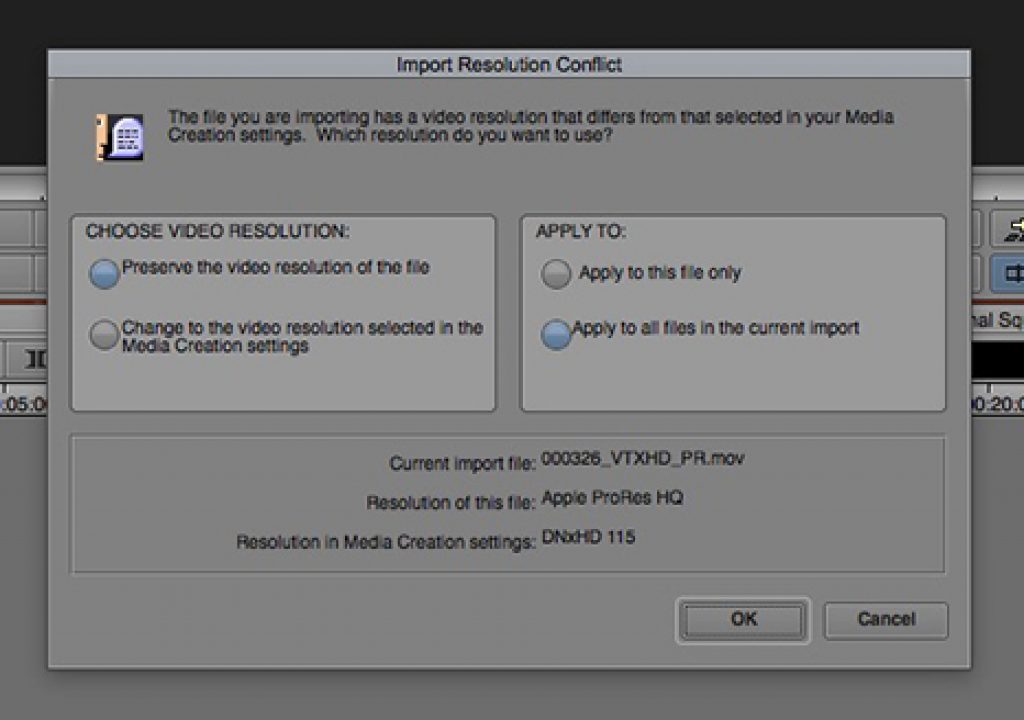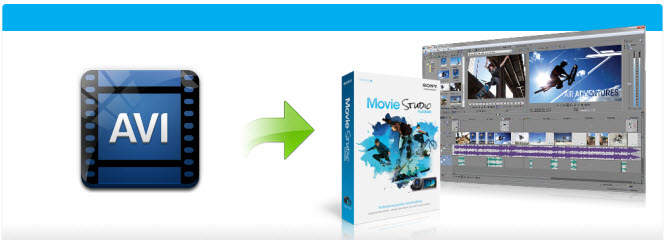Recently, Apple announced that it would be discontinuing support for “legacy media” using 32-bit codecs in the next major release of the macOS after Mojave. These soon-to-be-discontinued codecs were built, for the most part, on QuickTime 7, which is also 32-bit.
- Here’s is Apple’s announcement.
- Here’s the article I wrote about Apple’s announcement.
- Avid Codecs LE / DNxHD 2.7.6 Avid Quicktime Codecs Light Edition allow systems to encode and decode QuickTime movies and references using Avid codecs. Avid DNxHD is a lossy high-definition video post-production codec. Avid has designed the codec to export and import quickly, as fast as four times the real playlength of the source material.
- Contrary to previous information about 3rd party video codec support changing with the release of macOS Catalina, and the end of 3rd party codec support natively in the macOS, according to an Avid Press Release announced at IBC 2019 last weekend, Avid appear to be suggesting that there will be macOS support for Avid DNxHR and DNxHD codecs. As part of their IBC 2019 coverage Avid.
NEW VERSION 2.7.6 Avid Codecs contains Avid DV, DV100, DNxHD codecs. Avid HD intermediate codec (DNxHD) is useful if you want convert HDV/AVCHD to a format/codec that is supported in more editors (a mov with Avid DnxHD). Use the codecs in Quicktime Pro, Avid, Vegas Movie Studio, Vegas for example. If the codecs (i.e. Xvid, DivX, mpeg-4, wmv8.) used to create the original AVI files are not proprietary and you don't want to install many of different codec packages on your computer, then the easiest way to get.avi format playable in QuickTime on Mac platform is convert AVI file into a format that's QuickTime accepts—MOV for example, with video conversion utility. Windows users are having less problems than Mac users. Using the Avid DNxHD codec gives better performance. See our article on using MPEG Streamclip to transcode into Avid DNxHD. The AJA hardware may be better than the Blackmagic cards. We are arranging some tests with Mike Aiton to see if we can verify this. Bypass QuickTime in Pro Tools 11.
Prominent on Apple’s list were DNxHD and DNxHR, both of which are used regularly for Avid Media Composer projects. Because the concept of “old media not working” can scare any editor, I emailed Avid a series of questions to learn the impact of Apple’s decision on Avid software.
Here are my questions, along with Avid’s response:
Media Player Codec Pack Mac
Larry asks: My first question speaks to the fear of “nothing working” in Media Composer. DNxHD/DNxHR are two of the soon-to-be-discontinued codecs in macOS. My understanding is that Avid relies on codecs supplied by the macOS. Therefore, if some codecs – such as the list Apple provided – are no longer supported by the macOS, Media Composer and other Avid applications, will no longer be able to play existing media. Is this understanding correct?
Avid: DNxHD and DNxHR are not “soon-to-be-discontinued” on Apple systems. Any application that supports these files formats and codecs natively will continue to work after macOS Mojave, and as such will not disappear from use on an Apple platform.
Media Composer – and many other applications that run on macOS – supports DNxHD and DNxHR without the use of codecs from the macOS. The announcement from Apple does not prevent anyone working with Media Composer products, nor any other product that has native support for the DNx family of codecs, from working with DNxHD and DNxHR media. This announcement is restricted to users of FCP, Motion, and any other application on macOS that has not implemented DNxHD and DNxHR natively.
Media Composer and many other applications work natively with DNxHD and DNxHR by using 64-bit libraries from Avid, or from other 3rd parties – whether the media is in the QuickTime file format or the open MXF standard.
Specifically, for QuickTime file formats, many applications, including Avid application, have depended on the QuickTime 7 libraries supplied by Apple, for which Avid developed a plug-in for DNxHD and DNxHR support. With the deprecation of the QuickTime 7 libraries, these applications are moving to the same native codec implementation method as was used for the MXF file format.
Larry asks: As a follow-on question, when does Avid rely on Apple’s codecs and when does Avid create their own?
Avid: Many codecs are supported natively within Media Composer or through partner plug-ins – none of which rely on codecs from Apple. Avid maintains documentation regarding codec support in Media Composer (and other) products:


Apple Quicktime Codec
Additionally, the following formats no longer require QuickTime 7 libraries for reading (linking to, importing, editing, playing back, etc.) with Media Composer:

- MJPEG (.mov, .mp4)
- JPEG (.jpg)
- PCM Audio (.mov, .mp4)
- TIFF without alpha (.tif)
- AAC (.mov, .mp4, .aac)
- XAVC-S (.mp4)
- H.264 (.mov, .mp4)
- DNxHR, DNxHD (.mov)
- ProRes (.mov)
Exporting these files in a .mov wrapper is currently still reliant on QuickTime 7 libraries. Avid is in the process of updating our products to no longer rely on these libraries for export and will release software updates in the coming year. Other products have their own schedules for reading and writing DNxHD and DNxHR QuickTime file formats.
Larry asks: For editors that, for whatever reason, don’t want to transcode their media to ProRes, which Apple recommends, which codecs does Avid recommend for those that want to future-proof their media?
Avid: The DNxHD and DNxHR codecs adhere to the SMPTE VC-3 standard, which means that they are inherently future-proofed. Customers who wish to interoperate with media in both Final Cut Pro and Media Composer should transcode their media into a format that both support, like AVC-Ultra, XAVC-I, XAVC-S, etc., preferably wrapped in MXF.
Larry asks: Because technology marches on, should Windows users consider transcoding their media and, if so, what codec(s) does Avid recommend for Windows?
Avid: Windows users can continue to use the codecs and formats they rely on today. If they are truly concerned, they should consider a true SMPTE standard format like DNxHD or DNxHR with an MXF wrapper. In addition, due to the wide support of codecs and file formats both on Mac and Windows version of Media Composer, there is often no needs to transcode to any formats. That material can be directly linked to, or simply rewrapped in Avid’s MXF based file format.
Larry asks: For those editors that live in an Avid universe, is Avid planning to provide a utility that can search for outdated media and convert it into a more future-proof format?
Avid: Media Composer can transcode a multitude of formats and codecs into DNxHD and DNxHR media in an MXF wrapper – a fully future-proofed format. Avid has not identified any “outdated” media that editors should be concerned about converting at this time.
CLOSING NOTE

There are two “flavors” of DNxHD/HR: Those built on the 32-bit QuickTime 7 architecture and those that are “native.” A native codec is a codec that was written by Avid, which does not rely on the 32-bit architecture of QuickTime 7. As Avid discussed above, native codecs should be fine for future use. It is those built on QuickTime 7 that are in jeopardy.
Part of the confusion over the coming codec change is that QuickTime 7 provides support for DNxHD / DNxHR, while Avid also provides native DNxHD / HR support. This leads to confusion where Avid recommends transcoding to DNx, while Apple says that DNxHD is one of the codecs being discontinued. Sigh… It is currently very difficult for non-engineers to tell if they are using a 32-bit or 64-bit version of a codec. Hopefully, this confusion will get cleared up over time.
As mentioned in my original article, we don’t need to do anything, yet, except to be aware that this change is coming. However, it wouldn’t hurt to look over past projects and start to catalog what codecs they used. We will learn more from both Avid and Apple as the transition gets closer.

Avid Quicktime Codecs For Mac Windows 7
Bookmark the permalink.